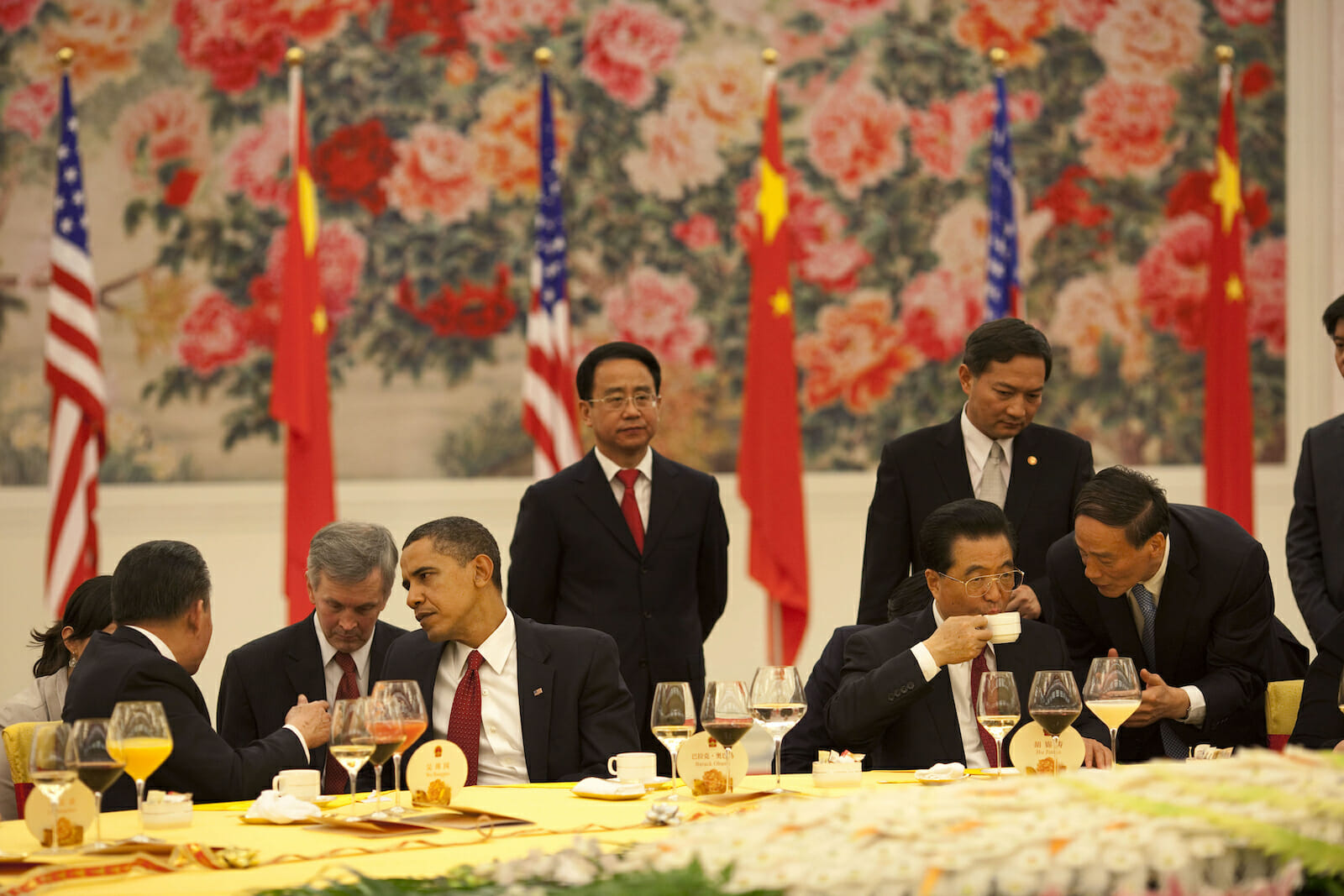
The Year of the Dragon
As the world’s largest yearly migration of people is underway in the PRC many travelers will be wondering on the long journey to celebrate the Chinese Spring Festival what good fortune the year ahead will bring? Cheng Siwei, Former Vice-Chairman of the Standing Committee of the National People’s Congress (NPC) is fresh off his interview with the BBC show “Hardtalk” and had a few choice comments about China’s outlook and the hurdles they face in 2012, but stuck very much to the Party line. He was frank when asked what he thought about the outlook of the Chinese Economy in 2012, the supposedly lucky “year of the Dragon.”
Mentioning external factors such as excessive liquidity and low interest rates as a cause for concern due to the inflationary pressure in developing countries, he mainly was referring to the US Fed policy of quantitative easing that has produced two rounds so far pumping billions into the global economy. This money moved to developing economies in what some called “speculative investment,” according to Edward Harrison. Moroever Cheng Siwei spoke of the massive deleveraging and withdrawal of investments in the coming year as part of China’s slowdown.
The internal patterns that China has to contend with relate to the oversupply of money and thus inflation as well as the monumental task of getting people to part with their hard-earned money in a bid to transition from export led model, that has been at the back for their success since the reforming and opening period and towards a consumption led model. To do so he mentioned the need to continue to reform the social safety net.
As a nation of savers, ordinary Chinese do not spend their money the way Americans do with easy credit and health insurance. They save for a rainy day. Additionally, Cheng hopes that when the Chinese spend they will not only buy Chinese manufactured products, but also support indigenous companies.
In effect, the Chinese market has to support the local industry. Given the advantageous position that the PRC has in terms of the growing middle class and appetite for conspicuous consumption on the rise. It should be noted that this is the fastest growing market for high-end and luxury good items. Unlocking the potential of the middle class in China as an engine for growth has been widely heralded as a major player in the global economy.
That said, the most important issue would be those that China can make in terms of public policy within its own borders. The rising social unrest and poor environmental record have a good chance to be tackled as laid out by the latest five-year plan. But transitioning from Central Party objectives to the hard realities faced on the ground by provincial and municipal cadres will be the real test in 2012. Given that China is a vast and large country there is no one size fits all and the broad policy planning going on in Beijing shows the first initial phase shift in what amounts to a decade long process.
Similar to the way that Beijing didn’t opt for the shock therapy approach of Eastern European counterparts after the fall of the Soviet Union, Beijing will make this guided transition over the coming years in an effort to pre-empt major flares of social unrest and maintain legitimacy. Much has been learned by the CCP since the days of Tiananmen. The repressive tactics used by the regime of human rights activists in the lead up to the 2012 transition show the imposing power of the CCP to reign in all levels of society.
Moreover, the growth of the internal security forces are very important indicators of how vulnerable the Party feels at this particular moment in time. The 2008 financial crisis really caught the whole world off guard and it is imaginable that the CCP felt that their development trajectory didn’t see them heading down this path till at least around 2020 or so when the demographic dividend was no longer a sustainable variant in pursuing export-led growth. The curious mixture of state-owned enterprise, low cost labour, investment in equipment and machinery, slack regulation, substantial export subsidies, along with government interference in currency markets gives Chinese manufacturers a substantial cost benefit.
Moving the more profitable coastal cities and provinces toward consumption while at the same time transitioning some of those labour intensive industries to the underdeveloped regions in the interior, may also bolster the CCP “go west” policy. Moreover, China must reform its banking industry to conform to western standards on governance and transparency. No easy task when considerable political “rents” are forwarded through the SOEs in China and the preferential treatment they receive.
Additionally, the bubble that is in the midst of unraveling in the housing market here poses a great risk to the average Chinese citizen. Housing has had stable returns in China for the past two decades and was seen as one, a stable means of getting capital to the local governments through the sale of land, and two the safe haven from Chinese investors who shunned the casino atmosphere for Chinese stock markets.
The excess demand and subsequent lack luster cooling measures have done little to cool the markets. The global effects of which will reach out to those forestry companies in Canada selling timber, to Australian coal suppliers, and major machinery producers like Caterpillar.
Given the state of the global economy it makes a lot of sense for China to start the transition away from export-oriented economy. No longer are the Americans ready and able to absorb Chinese manufactured wares based on easy credit available to them and their status as the reserve currency is in shaky territory. As mentioned the Chinese demographic necessity is a heavy propagating factor, it would simply be unsustainable not to mention costly for the Chinese government to continue to intervene in the markets to make the Chinese goods competitive on the lower value added products.
Places like Vietnam are more capable to compete on that low-end spectrum. Thus as with all other nations in the East Asian “Flying Geese” model China must move to high value added goods and also grow the economy through domestic consumption. Something that will prove quite difficult in the country where conspicuous consumption by the middle class is growing, but the rainy day fund held by those 600 million Chinese in the countryside remains high.
Improving the social safety net can encourage those people that they should enjoy the fruits of Chinese development and growth and the government can provide in their elderly years or when they are sick. The tenets of a developing economy must be measured in such a way. The political calculations made by the CCP are no small matter and they are highly reticent of the huge population the countryside that hungers for that same development of those in the cities. The advent of rising social unrest and the global financial crisis in 2008 has if anything sped up the pace of this process in China hopefully for the better.
When faced with such massive crisis as climate change and environmental issues, demographic transitions, social unrest, and a transitioning economic model, not to mention the change of power in Beijing, it seems 2012 is set to be a very interesting Year of the Dragon for the Middle Kingdom.

